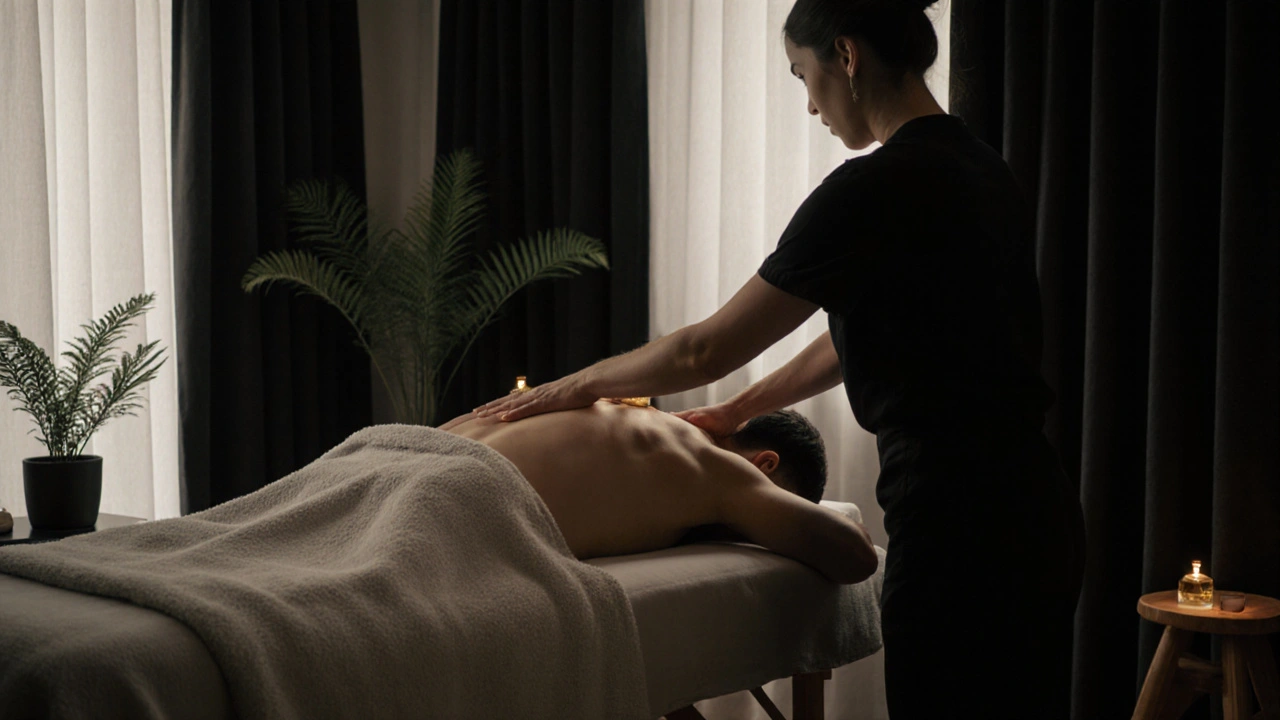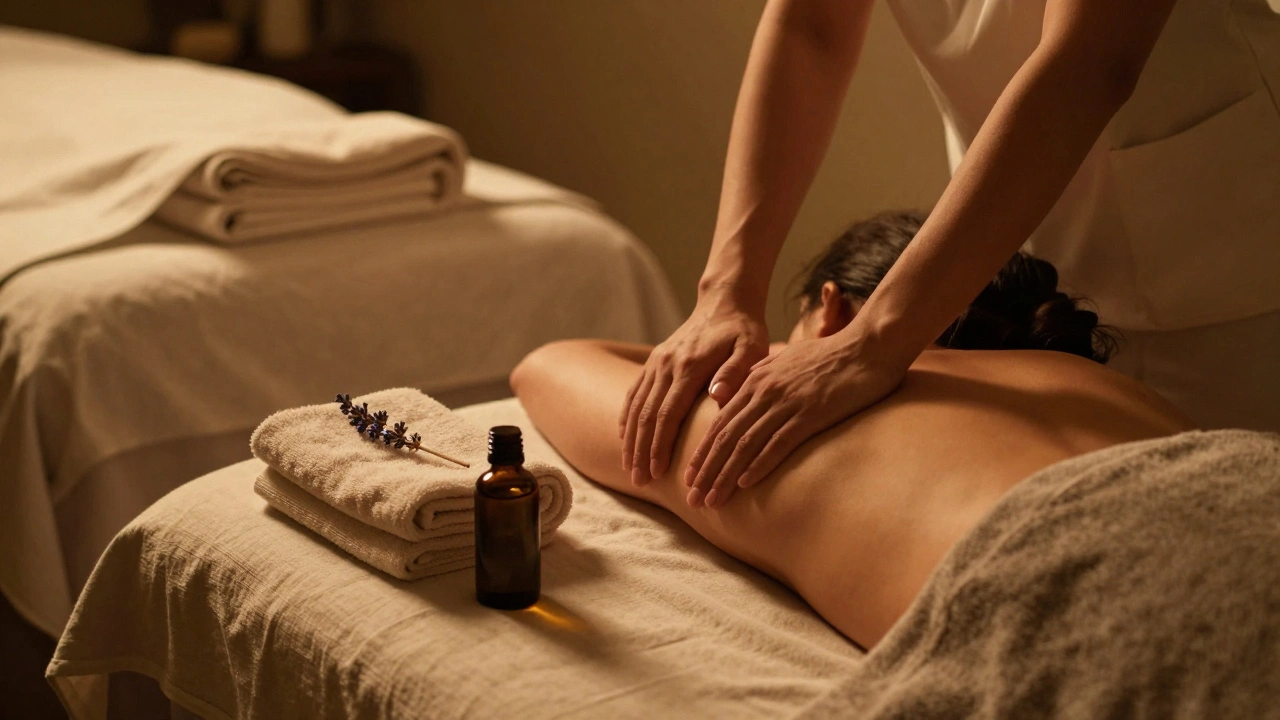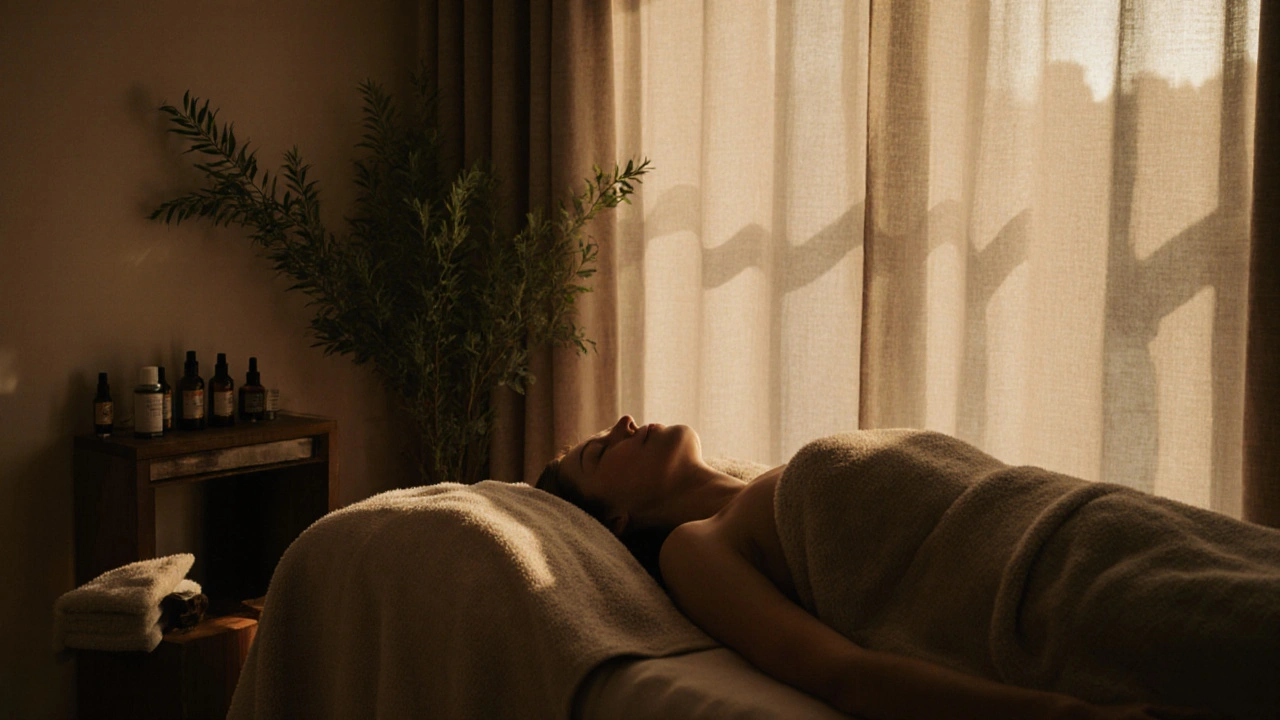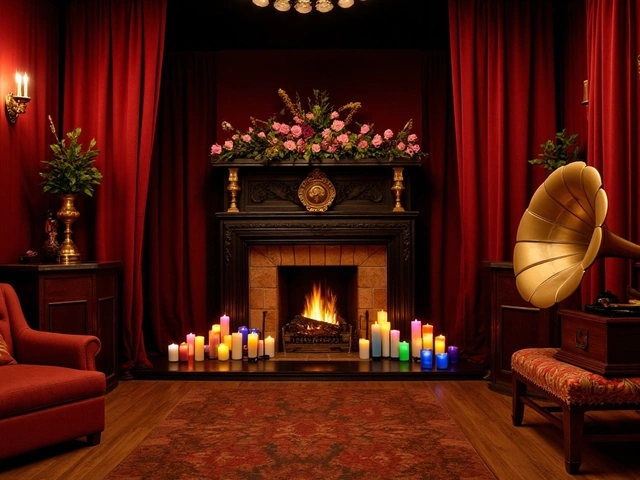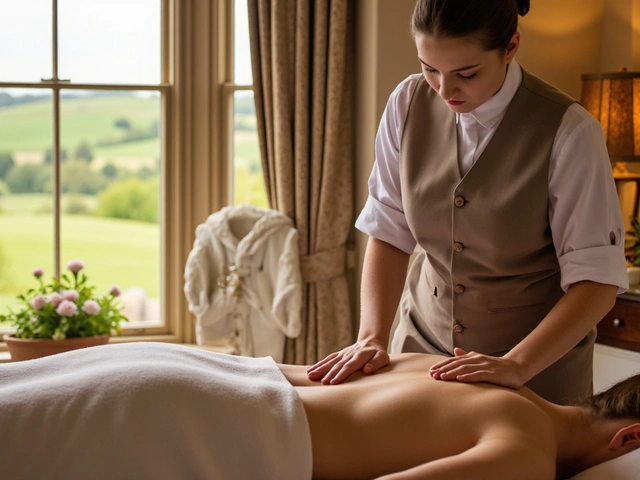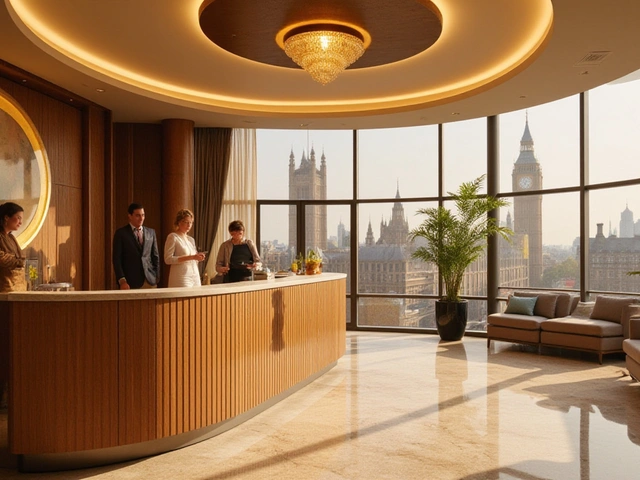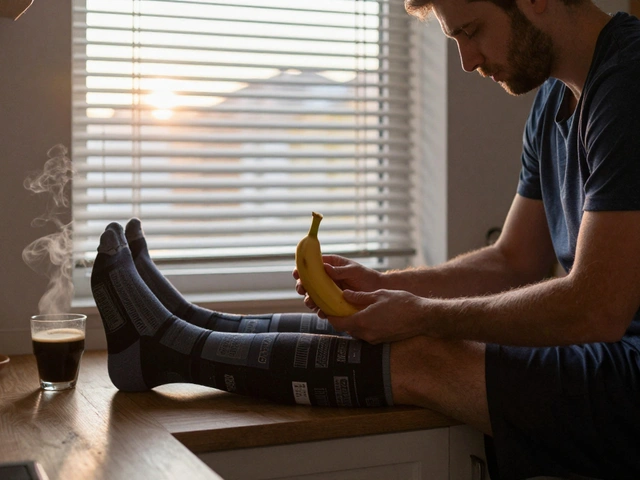Direct Answer – London’s Massage Therapy: Quick Facts
Looking for a fast answer? London’s massage therapy scene is where stress-busting relaxation meets real science. Whether you want deep tissue techniques or holistic rituals, the city’s spas and clinics offer skilled therapists who use evidence-backed methods to help you relax, heal, and recharge. There’s something for everyone, from athletes to desk workers to those craving a mental reset. Expect cutting-edge therapies alongside time-honored traditions, all tailored to modern London life.
Key Points – What You Need to Know
- London’s massage therapists combine medical knowledge with stress-relief techniques.
- Diverse choices: Swedish, deep tissue, sports, Thai, hot stone, acupuncture-inspired, and more.
- Spas and clinics span from iconic Central London venues to boutique neighborhood studios.
- Prices vary (£60–£150 per session is common), but higher-end treatments may go up to £250+.
- Modern clinics offer online booking, flexible hours, and sometimes home visits.
- Always check therapist credentials and hygiene standards to ensure a safe, quality experience.
- Many venues offer packages, late-night sessions, and add-on wellness services like aromatherapy.
- You’ll find luxury hotel spas as well as hidden gems near local landmarks or transport hubs.
Comprehensive Guide to London’s Massage Therapy: Where Science Meets Serenity
Here’s the thing: London is noisy, busy, and, let’s be honest, a bit relentless. Ask anyone who’s wrestled with the Tube or survived those endless rainy Mondays. Yet tucked away from the chaos, an entire world of massage therapy is quietly working wonders—mixing medical smarts with seriously soothing touches. Modern massage in London isn’t just about getting pampered, though you’ll get plenty of that too. We’re talking about post-workout recoveries with a therapist who knows their anatomy, stress relief that’s as effective as antidepressants for some (a 2023 NHS-funded study at King’s College London saw a 45% improvement in mood scores after weekly massages), and pain management so good even doctors recommend it.
This unique blend of science and serenity makes London an outlier. Some therapists are biomedical graduates; others bring decades of hands-on experience with Himalayan stones or Japanese Shiatsu. Clinics partner with physiotherapists, running joint rehab-and-relaxation programs for office warriors who can’t remember the last time their shoulders weren’t hunched. Meanwhile, spas have glided into a wellness revolution, offering therapies based on peer-reviewed research and health data.
Picture this: After a stressful week, you walk into a Scandi-chic clinic near the Thames, greeted by a therapist who takes your posture as seriously as your preferences. You might get assessed with AI-powered posture scanners (a few high-end clinics have adopted these), ensuring your massage isn’t just art but data-driven. Or maybe you’re handed an aromatherapy blend customized to your stress chemistry—yep, those exist—before you melt into a heated table that tracks your muscle tension. If that’s not modern, what is?
It’s not all gadgets and tech, though. The heart of London’s massage scene is still about human touch, intuition, and tailoring each session to the person on the table. Traditional techniques aren’t ignored. Instead, they’re adapted to suit today’s aches and anxieties. The proof? More GPs and physiotherapists are recommending massage therapy for chronic pain, anxiety, and injury rehab than ever before. Instead of a luxury, it’s become a smart self-care move for everyone from runners in Hyde Park to city bankers pulling all-nighters in Canary Wharf.
As Dr. Priya Saha of University College London puts it,
“The right massage, delivered with proper technique and after proper consultation, can be more effective than painkillers for many musculoskeletal issues and stress syndromes.”Who can argue with that?
Definition and Context – What Makes London’s Massage Scene Special?
So what exactly is massage therapy in the London sense? Let’s break it down. ‘Massage therapy’ is the scientific manipulation of muscles, connective tissue, and sometimes even deeper structures to improve function, soothe pain, and trigger relaxation. In London, the bar is set high: therapists often hold qualifications from recognized UK bodies (like the FHT, CThA, or ITEC). Many are licensed and insured, which isn’t always the case abroad.
But here’s why London stands out: therapies don’t fit a one-size-fits-all mold. Whether you’re a tech worker with RSI, a pre-natal client, or a hardcore athlete, the city’s approach is totally bespoke. Clinics offer initial consultations to design sessions that target exactly what you need—like that worrying knot in your back or an old running injury that flares up every time it’s cold. Even the ambiance is tailored, with everything from ambient jazz to sunrise lamps that fight off SAD (seasonal affective disorder) using light therapy.
Location plays a big role, too. In Shoreditch, you’ll stumble on hip, minimalist studios using mindfulness cues. Head to Knightsbridge, and expect plush, marble-floored sanctuaries with luxury oils. South London’s best clinics focus on sports recovery, while areas around Harley Street lean toward clinical treatments for chronic pain and medical referrals. You get the picture: wherever you are in London, you’ll find a venue that “gets” not just your symptoms but your lifestyle.
Ever wondered why massage is suddenly part of health insurance plans? Thank the rise of scientific evidence. The British Journal of Sports Medicine reported in late 2023 that regular massage can reduce pain intensity by up to 30% in chronic back pain patients, based on a six-month controlled trial. Another University of Westminster project found massage therapy lowered workplace-related anxiety levels in London office staff by 38% with just four weekly half-hour sessions. Pu t simply, it’s no longer an indulgence – it’s a proven way to stay sane, mobile, and optimistic in the city.
Benefits of Massage Therapy in London
Alright, you’re probably wondering: Is it really worth it? The short answer: absolutely. Benefits go way deeper than feeling relaxed for a couple of hours. London’s best massage therapists know their stuff, and quantifiable results speak for themselves. Soft tissue release can boost circulation, help lymphatic drainage (that means less puffiness, especially if you’re constantly commuting or flying), and speed up healing after sports injuries. For office workers, regular massage can sort out neck kinks from bad posture and stop tension headaches before they knock you out for the day.
One big plus is mental health. You might leave a session feeling like someone just hit your personal reboot button. Endorphins and serotonin (your happy hormones) spike during firm, rhythmic massage. A team of researchers at King’s College Hospital found that massage recipients reported up to 50% less anxiety after just three sessions. It’s not just in your head, either—heart rates lower, blood pressure drops, and your immune system limbers up (great news during cold season).
Let’s talk pain relief. Science is steadily backing up what ancient healers knew: massage helps manage chronic pain as well as medication—sometimes better. NHS studies now link regular massage sessions with decreased dependence on prescription painkillers for issues like chronic lower back pain and arthritis flares. For athletes or the particularly active, targeted massage reduces recovery times, helps prevent injuries, and can even improve mobility over time.
On the beauty front, don’t overlook what massage can do for your skin and mood. Lymphatic facial massages have long-term effects on puffiness and tone. A facial massage using vitamin E-rich oils (a favorite at luxury Knightsbridge spas) can increase blood flow and collagen production, so your skin glows long after you walk out the door.
Testimonials make it real. Take Tom from North London, who swears by weekly sports massages for his marathon training. Or Priya, a city lawyer who claims her Sunday deep tissue ritual fixes the week’s stress so she doesn’t “snap at her boss” on Mondays. Real stories, real results—no magic involved, just some clever muscle science and the right hands.
Types of Massage Therapy Available in London
Now, let’s get specific. London has more massage options than you’ve had hot dinners. Here’s a rundown of what you’ll find, each with its own specialties and quirks.
- Swedish Massage: Perfect for newbies or anyone after all-around relaxation. Long, sweeping strokes melt away tension. If you want to zone out, this is your pick.
- Deep Tissue Massage: Great for chronic aches, old injuries, or stubborn knots. Therapists use precision pressure, focusing on those problem spots you can never stretch out yourself.
- Sports Massage: Tailored for active types. Stretching, joint articulation, and pressure techniques help you bounce back from cycling, running, or gym marathons.
- Thai Massage: Not just a back rub. Expect assisted stretches and pressure along energy lines, all performed on a floor mat. It can feel intense at times, but you’ll walk out looser, lighter, and maybe an inch taller.
- Hot Stone Massage: Heated basalt stones deliver deep warmth into tight muscles. After 20 minutes, you’ll feel like you’ve melted into the table (in the best way).
- Shiatsu and Acupressure: Drawing from Chinese and Japanese traditions, these methods use finger or palm pressure to unlock energy flows. Some therapists integrate modern research on acupuncture points for maximum benefit.
- Lymphatic Drainage: Gentle but powerful, helping post-surgery recovery, puffiness, or immune boost. A favorite among wellness influencers in Chelsea.
- Prenatal and Postnatal Massage: Specially trained therapists make it safe and comfortable for expectant mothers. Booking a certified pro is key—safety comes first here.
Some spas even combine techniques. You might see “Swedish/Deep Tissue Fusion” or “Hot Stone & Aromatherapy Experience” on menus, blending the best of both worlds. London’s more experimental spots dabble in CBD oil massages or “cognitive touch therapy”—all aimed at getting those nerves and muscles to chill out, pronto.
Traditional therapies are just as respected. Ayurvedic massage (from India), Tok Sen (Thai wooden hammer massage), and even old-school British manual lymphatic drainage have their place, supplying a fun mix of east-meets-west treatment for every taste and need.
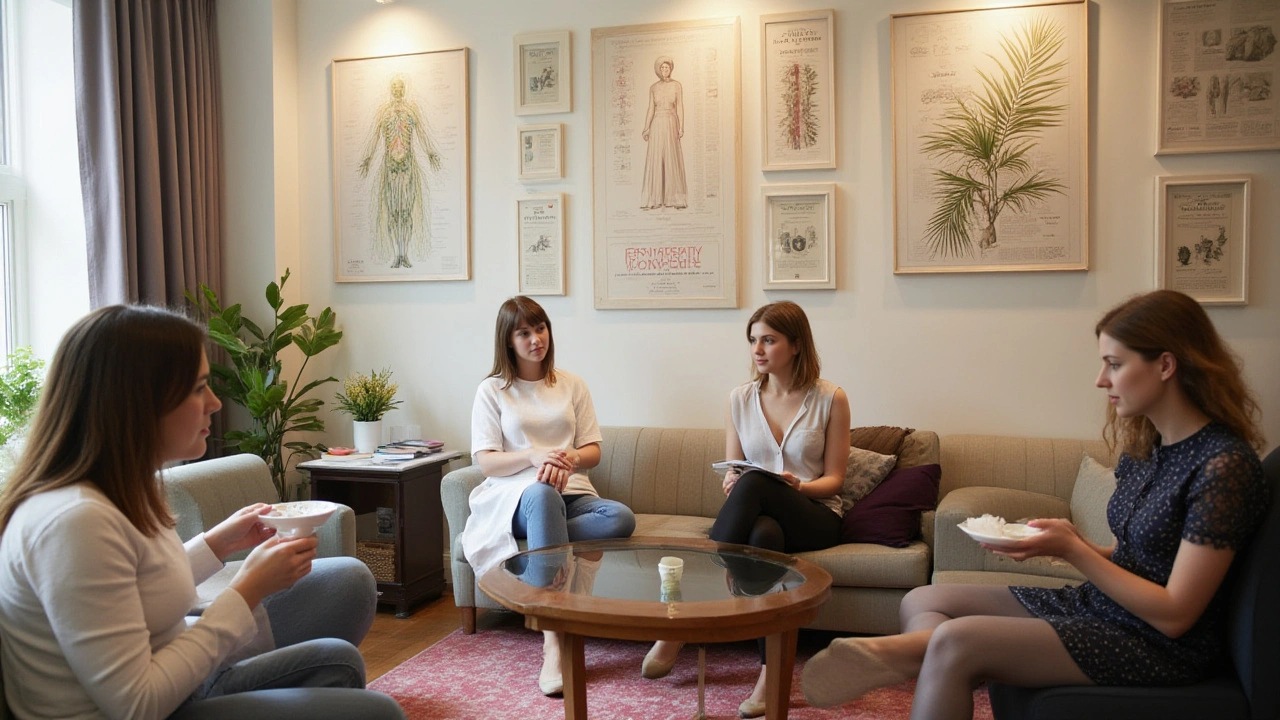
How to Find Massage Therapy Services in London
So where do you actually book a session? London’s saturated with options, so making the right pick can feel like finding a needle in a haystack. Start by zeroing in on what you want: clinical recovery, pure relaxation, or maybe a bit of both? Websites like Treatwell and Urban let you filter by therapy type, therapist qualifications, and even opening hours, so you’re not left scrolling endless lists. Google Reviews, Trustpilot, and Instagram geotags are goldmines for honest (sometimes hilariously detailed) reviews from locals.
As for locations, Central London’s got the highest density of luxury spas—think Mayfair and Marylebone, draped in marble and glass. If you’re after more specialized or community-oriented treatments, try Hackney for mindfulness studios or Clapham for boutique sports therapy clinics. Don’t rule out the riverfront, where Chelsea and Battersea now boast world-class wellness hubs with high-tech extras like cryotherapy and hydro suites.
Want to go hyper-local? Many massage therapists operate out of yoga studios, gyms, or coworking spaces. Pop-ups are popular too—sometimes you’ll see a massage chair in a Shoreditch market or right in your office lobby if your employer’s on the wellness bandwagon. Mobile massage apps are booming as well, letting you order a session in your own living room if London’s weather is acting up (which, let’s face it, is always a risk).
For extra safety and hygiene, check the London & Counties Society of Physiologists (LCSP) directory for verified, licensed therapists. Professional clinics will be listed, showing qualifications, specialties, and years in business, so there’s no guessing game. If you’re looking for medical-grade treatments—especially for chronic pain—a referral from your GP can send you to clinics that combine physiotherapy with massage for insurance-friendly sessions.

What to Expect During a Massage Session
Now, let’s get down to brass tacks. Walking into your first London massage session? Here’s how it usually goes. You’ll start with a questionnaire about health, injuries, and goals. A top-notch therapist will chat through any aches and preferences before you even lie down. Some clinics use digital forms, while others do it old-school—paper and pen with a cup of tea.
You’ll be shown to a private room, where you can undress as much (or as little) as you feel comfortable. Draping is standard, so only the treated area is uncovered at any time, keeping things safe and respectful. Want music or silence? Say so, and don’t be shy about requesting more (or less) pressure—communication is key.
During the treatment, expect a mix of movements: kneading, sliding, pressing, and stretching. The therapist may use elbows or special tools for deeper tissue work; for fusion treatments, they might add hot stones or therapist-guided stretches. Around halfway through, you’ll find yourself lulled into a dreamlike state where worries drift away. Some venues end with a gentle head or face massage, making for a real “full reboot” vibe.
Afterwards, you’ll usually be offered water or herbal tea to help flush out toxins. The therapist may give you tailored aftercare tips—stretching suggestions, posture hacks (like swapping your chair for a stability ball), and even breathing exercises if stress is your main issue. Don’t rush out: take at least five minutes to reconnect with your surroundings before powering back into London’s chaos.
Pricing and Booking
No one likes confusion around costs. Most reputable London massage venues display prices upfront. You’re looking at about £60–£120 for a standard hour-long session. High-end hotel spas and clinics near landmarks like Regent Street may charge £150–£250, sometimes more for extras like aromatherapy or private rooms. Many studios offer shorter (30-minute) “power” massages, perfect for lunch breaks, or discounted multi-session packages for regulars.
Booking is easy. Most places offer real-time online calendars, so you can bag a spot at 10 p.m. from your phone. Traditionalists can call and book, but online is quicker in most cases. Weekend and evening appointments go fast, especially at top-rated venues. If you’re booking something medical or claimable through insurance, ask the clinic for the right documentation ahead of time.
Safety Tips
London takes safety seriously, especially post-pandemic. Reputable clinics sanitize between sessions, keep fresh linens for every guest, and follow government health guidance. Don’t be shy about asking how often rooms are cleaned or what their policy is for sick therapists—it’s your right to know. If you notice anything dodgy (like reused towels), walk out. Your health comes first.
Only use therapists with valid certifications and years in business. If you have a chronic health condition, pregnancy, or recent surgery, clear things with your doctor beforehand. For home visits, check the therapist’s ID and reviews prior to letting anyone in. Always speak up if you feel uncomfortable during the session—the best professionals will listen and adapt right away.
Comparison Table: Massage Therapy vs. Other Stress-Relief Methods in London
| Method | Effectiveness (Average User Rating) | Cost per Session (£) | Accessibility | Scientifically Proven Benefits |
|---|---|---|---|---|
| Massage Therapy | 9/10 | 60–250 | Widespread | Muscle relief, stress reduction, pain mgmt |
| Yoga Classes | 8/10 | 15–30 | Broad (gyms, studios, home) | Flexibility, mental focus |
| Counseling/Talk Therapy | 8.5/10 | 50–120 | Moderate (booking required) | Anxiety/depression relief |
| Meditation Apps | 7/10 | Free–12 | Anytime, anywhere | Stress reduction (long-term) |
| Traditional Spa Days | 7.5/10 | 75–300 | Special occasion/weekend | Short-term relaxation |
FAQ: Your Questions About London’s Massage Therapy Answered
- Is massage therapy safe for everyone? – Most people can enjoy massage, but if you’re pregnant, have injuries, or complex conditions, always consult your doctor and book with a specialist.
- Do London therapists use oils and lotions? – Typically yes, unless you request otherwise. You can ask for hypoallergenic or unscented products.
- How often should I get a massage? – For general wellness, once a month is popular. For injury rehab or training, some do weekly.
- Can I claim massage therapy on my health insurance? – Many London clinics accept private insurance or medical cash plans. Check with your provider and get documentation upfront.
- Is tipping expected? – Not mandatory, but appreciated at many salons/spas. 10-15% is a common London tip if you’re happy with your experience.
- What if I feel uncomfortable during the session? – Always speak up. Professional therapists want you to feel safe and will adapt or stop if necessary.
- What’s the best way to find certified therapists? – Look for accreditation from bodies like FHT, CThA, or LCSP. Directories and verified reviews make searching simpler.
- How do I prepare for a massage? – Arrive a bit early, stay hydrated, and avoid a heavy meal beforehand. Wear comfy clothes and park your phone for real digital detox.
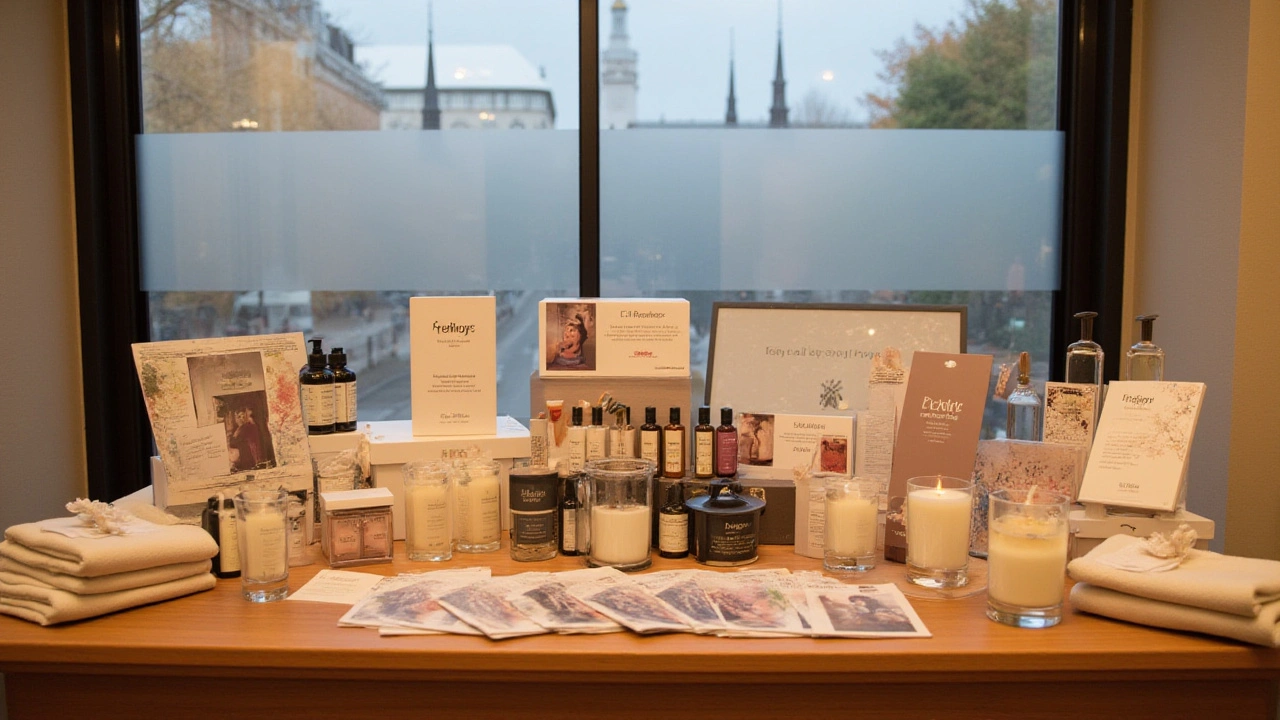
Ready to Relax? Book Your London Massage Today
So, thinking about escaping the daily grind and giving your body some much-needed care? London’s massage therapy scene is more vibrant, evidence-based, and user-friendly than ever. Whether you want a quick tension-buster or a therapeutic recovery session, there’s an option nearby—and it’s easier to book than ever before. Don’t wait for burnout to catch up; treating yourself to proven science and sweet serenity is what modern living’s all about. Go ahead—book your reset right now. You’ve earned it.

